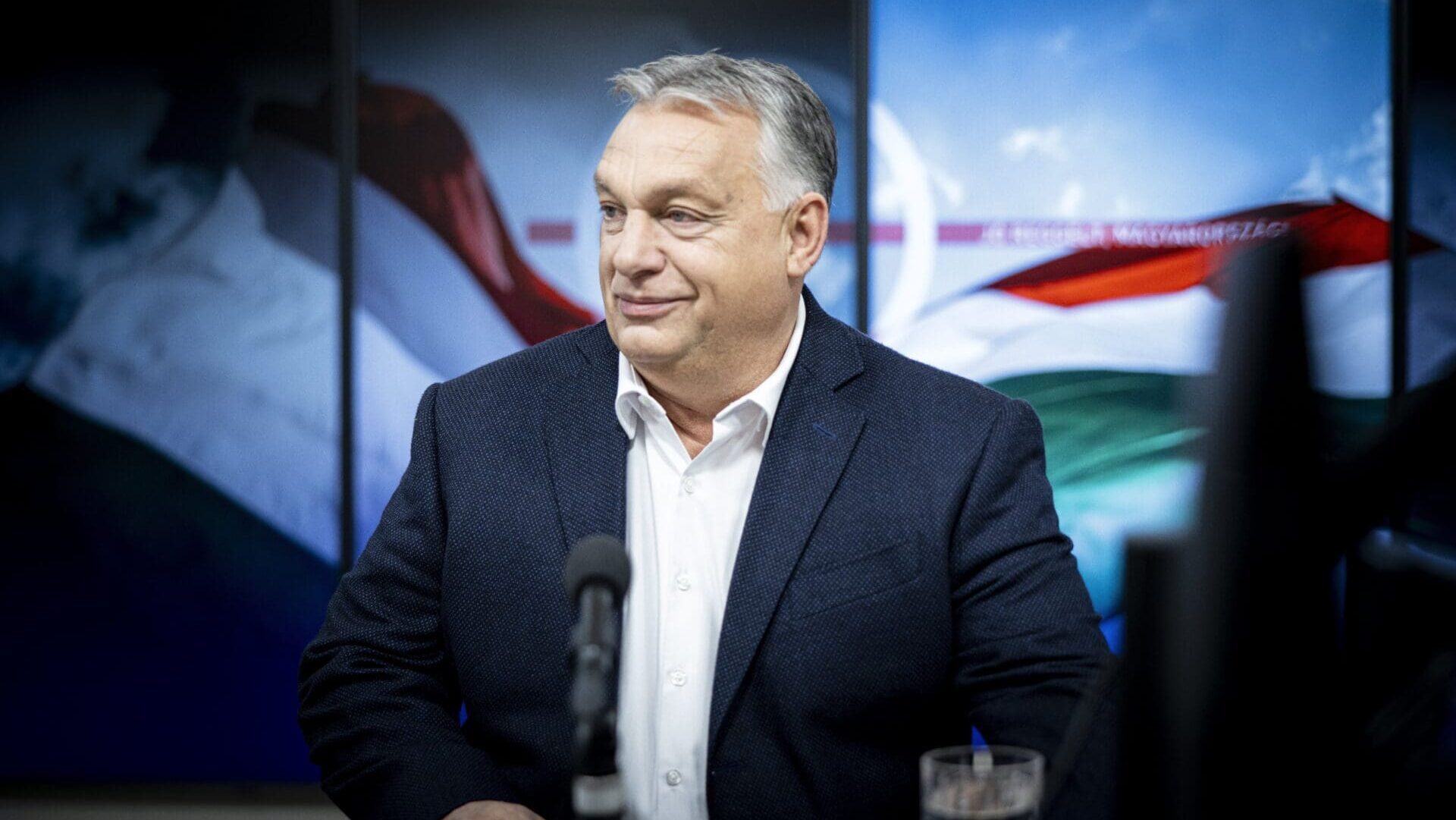On Friday morning Viktor Orbán was on public Kossuth radio for his regular weekly interview. The prime minister underscored that the European parliamentary elections have decelerated the momentum towards war, thereby buying time for Europe. He characterized the 80 billion forint (€200 million) fine imposed on Hungary by the European Court of Justice for violating EU immigration policy as a judgement from ‘George Soros’s court’.
Orbán emphasized that democracies in Europe cannot ignore public opinion. He highlighted that on election day, the French and Belgian governments were defeated, and the German Chancellor’s party placed third, which he described as an unprecedented outcome. This, according to Orbán,
signals to European leaders that they must support peace or face electoral defeat.
He argued that the Hungarian government received strong electoral support for its stance on peace, which was a decisive factor in recent discussions with the NATO Secretary General.
Orbán assessed that the government parties in Hungary won both the European and local elections by a significant margin, with voters decisively choosing peace over war. He stressed that this electoral support reinforces the Hungarian government’s commitment to its position, which is now non-negotiable. He added that both Washington and Brussels now understand that the Hungarian government will not shift from its position.
The Prime Minister elaborated on Hungary’s resistance to NATO’s Ukraine mission, refusing to participate in weapon transfers or military actions, to prioritize Hungary’s peace and security. He noted significant pressure from other NATO members to align with their pro-war stance, but maintained Hungary’s commitment to peace. Orbán highlighted that Hungary is recognized as a loyal and cooperative member of NATO, yet it stands firm on advocating for peace.
Regarding the EU’s immigration policy,
Orbán criticized the European Court of Justice’s fine as influenced by George Soros,
and reiterated Hungary’s refusal to comply with Brussels’ demands on immigration. He underscored Hungary’s right to decide whom it allows within its borders, emphasizing that Brussels should not dictate Hungary’s immigration policy. Orbán recalled Hungary’s significant financial expenditure to protect its borders and maintain national security, affirming that Hungary will continue to stand firm on this issue.
Orbán also commented on the possibility of forming a large right-wing coalition in the European Parliament. He noted that if Marine Le Pen of France and Giorgia Meloni of Italy could reach an agreement, and if Fidesz joined them, this coalition could become the second-largest faction in the European Parliament. He expressed optimism about this prospect, highlighting the potential for a significant right-wing shift in European politics.
The Prime Minister concluded by expressing determination to protect Hungary’s national interests and values, even in a challenging and often hostile European political environment.
Related articles:







